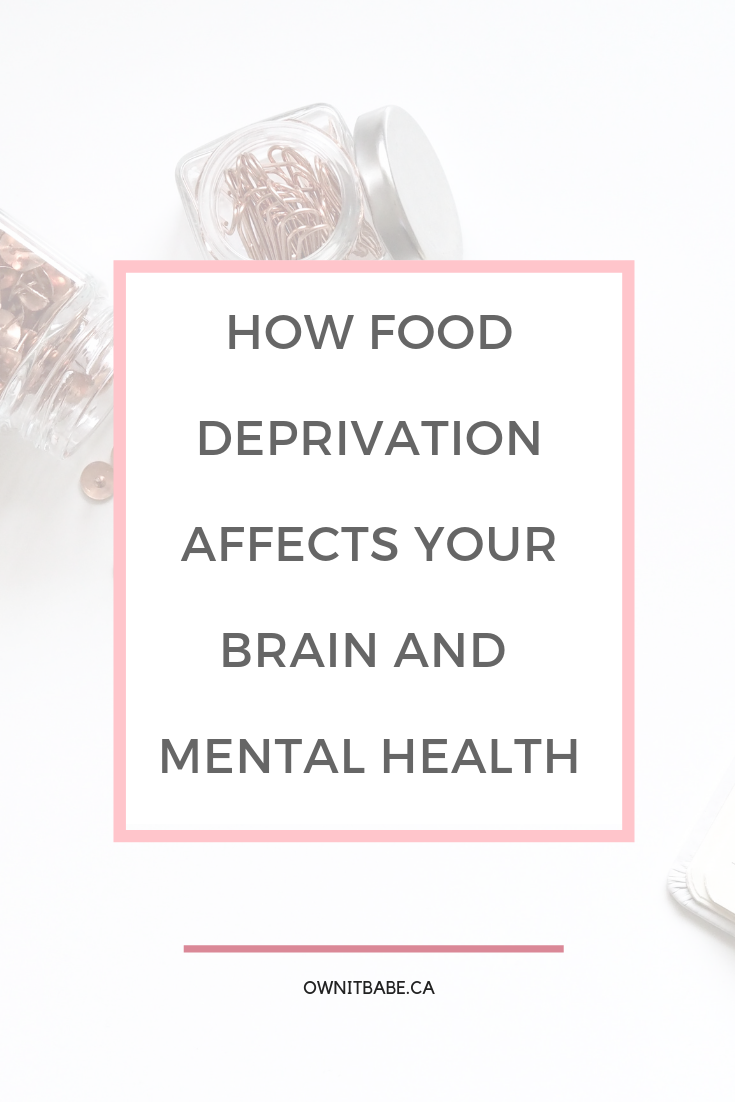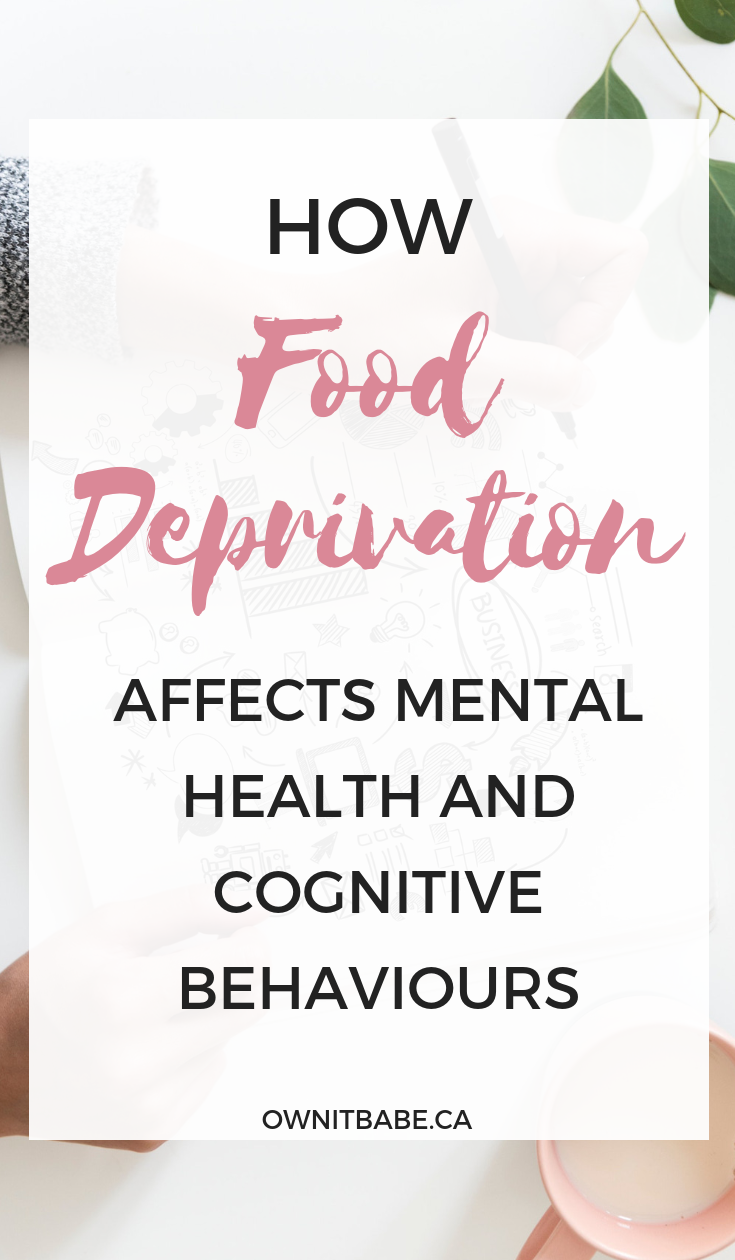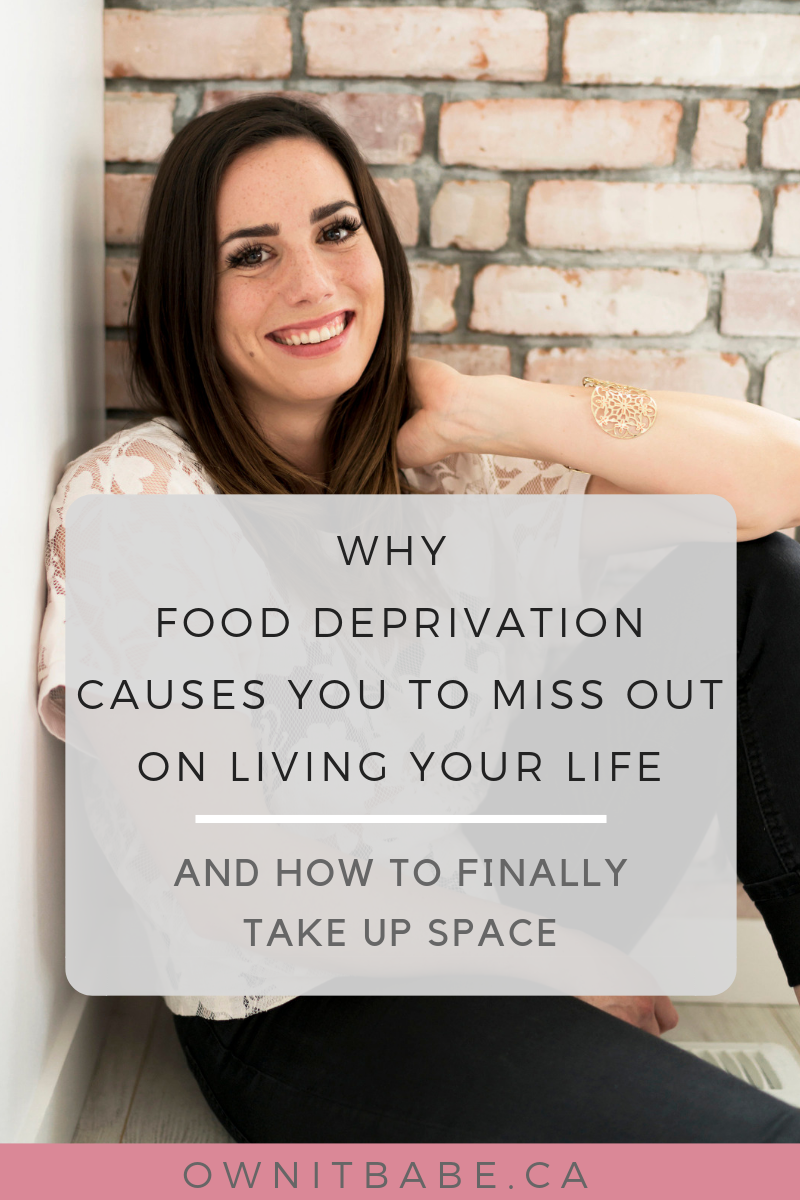Why Food Deprivation causes you to miss out on living your life

“Deprivation (noun): the lack or denial of something considered to be a necessity.”
Deprivation gets glorified, especially for us women.
Whether that is depriving ourselves of food, depriving ourselves of other basic self-care needs or even depriving ourselves of our wildest dreams in life, so that we can take care of everybody else’s needs first.
Have you ever thought about that?
In this article, I want to dive a little bit deeper and explain:
– How food deprivation harms our body’s physical well-being
– How it effects our brain and cognitive behaviours
– How it causes our mental health to decline
My hopes are that you get a better understanding of why food deprivation isn’t necessary for your health goals.
In fact, it’s quite the opposite and you want to make sure you feed your body properly to maintain and improve your health on all levels, physically and mentally.
How Food Deprivation affects our body
Our bodies have evolved over thousands of years and one thing allowed us to be here today: The survival mechanism. As soon as our body is under stress, it shuts down functions that aren’t necessary for our survival and instead amplifies the ones that are.
Hunger is one of our body’s mechanisms that ensures our survival. Being under stress doesn’t necessarily mean being busy or feeling stressed by an upcoming event. Physical stress also occurs when we deprive our body of food.
Our brain communicates this to the rest of our body, which then raises a red flag that shouts: “WE ARE IN A FAMINE! We need to seek food and when we find it, we need to eat the biggest amount of food possible, in order to be prepared for the next possible famine!”
This often leads to binge eating, eating in secret and restricting food to “make up for the binge”.
More on this right here.
More symptoms and effects of Food Deprivation
There is a really interesting study called The Minnesota Starvation Experiment that analyzed the effects of starvation.
The main takeaways of this study that are relevant for this article are the following:
– Major preoccupation with food – constantly thinking and talking about it
– Strong food cravings that don’t allow to think of anything else aside from food
– Sneaking food / eating in secret (binge eating)
– Obsessing over recipes and cookbooks, pursuing a career in the food industry
– Decreased energy, feeling lethargic
But there is more. Food deprivation also effects our brain and cognitive behaviours in a major way, which affects our entire personality in a negative way.
How Food Deprivation affects our cognitive behaviours
Nutrient deficiencies and the physical stress of food deprivation also affects our mental health and our brain. This, again, is due to our bodies evolution and drive to survive in highly stressful situations, such as past famines (or current diets).
In my personal experience, food deprivation led me to feeling extremely anxious, depressed, foggy and neurotic. Just to name a few of the effects that I felt at the time.
The results of The Minnesota Starvation Experiment in terms of effects on our brain function and cognitive behaviours are shocking. However, they were very real for me and everyone I’ve talked to that has been through chronic dieting, disordered eating and excessive exercise behaviours:
– Feeling depressed and irritable
– Difficulty focusing and concentrating
– Loss of ambition and interest in things previously enjoyed
– More neurotic
– Restless, anxious, hard to sit still
– Social interaction decreased
– Conversation centered around food
– Highly irritable and hostile with each other
Are all these effects reversible by re-feeding our bodies?
To a certain extent, yes, however it is a lot more complicated than just feeding your body again. The long-term effects of food deprivation can take a long time to unravel and fix.
Depending on how long we deprived our bodies of food, it can take months, sometimes years for our bodies to balance out again. All that being said, it is possible. In order for the process to be more smooth and manageable, it’s important to work on our mindset around food first.
By creating a mindset of abundance, not scarcity around food, our body is slowly able to trust us again, meaning that our body knows there will be no more famines (read: diets) down the road.
That is when our body balances our hormone levels and returns to its state of homeostasis (our body’s “chill-state”, where all functions, organs and hormones are balanced and running properly).
The Abundance-Mindset
The abundance-mindset goes a lot deeper than just food. When we stop depriving our body of food, we also learn to stop depriving ourselves of other things that make us happy. Some examples are social interaction, having a job that makes us happy, maintaining a work-life balance, being in a loving relationship, traveling, engaging in hobbies that we enjoy, etc.
It starts with food, but it evolves over time, so I can’t say it enough: Food deprivation causes us to miss out on living our lives. However, once we stop restricting, we will start thriving in all areas of our lives.
I never felt happy or fulfilled when I deprived myself of things I needed physically or emotionally
That is why I don’t care about what diet somebody is on. Dieting means food deprivation and I don’t want this to be the norm anymore in the health- and wellness industry. It’s not helping anybody long-term.
I’m much more interested in what your dreams are, what you want out of life, what your values are and what keeps you up at night. This to me is so much more interesting and fulfilling to think about these days.
Once I stopped depriving myself of food, it became less and less interesting, until I stopped thinking about it altogether. Unless I am hungry of course, which means I feed my body and move on with my day.
No more counting, no more obsessing and it is wonderful.
Personally, I want more from life and I’m done depriving myself of food, of speaking my truth or of working towards my dreams.
Share or Pin this Post



